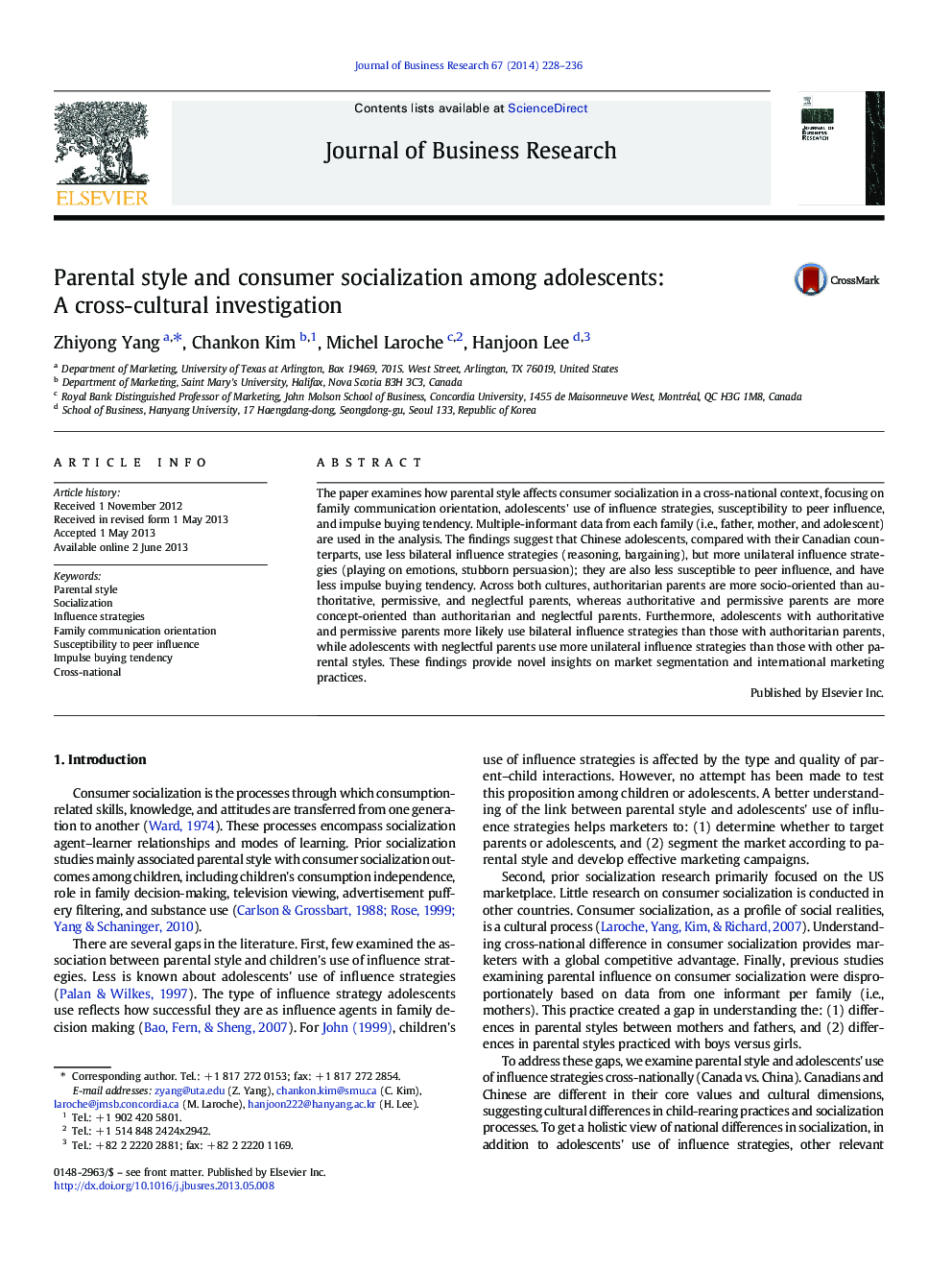| Article ID | Journal | Published Year | Pages | File Type |
|---|---|---|---|---|
| 1017432 | Journal of Business Research | 2014 | 9 Pages |
The paper examines how parental style affects consumer socialization in a cross-national context, focusing on family communication orientation, adolescents' use of influence strategies, susceptibility to peer influence, and impulse buying tendency. Multiple-informant data from each family (i.e., father, mother, and adolescent) are used in the analysis. The findings suggest that Chinese adolescents, compared with their Canadian counterparts, use less bilateral influence strategies (reasoning, bargaining), but more unilateral influence strategies (playing on emotions, stubborn persuasion); they are also less susceptible to peer influence, and have less impulse buying tendency. Across both cultures, authoritarian parents are more socio-oriented than authoritative, permissive, and neglectful parents, whereas authoritative and permissive parents are more concept-oriented than authoritarian and neglectful parents. Furthermore, adolescents with authoritative and permissive parents more likely use bilateral influence strategies than those with authoritarian parents, while adolescents with neglectful parents use more unilateral influence strategies than those with other parental styles. These findings provide novel insights on market segmentation and international marketing practices.
